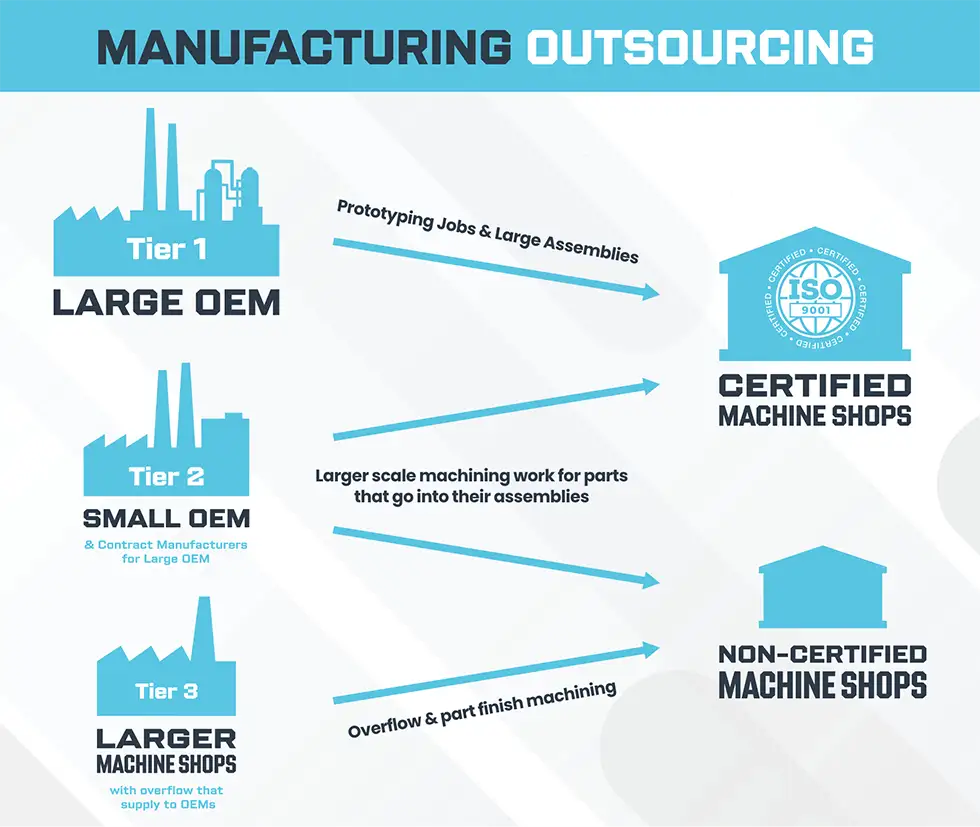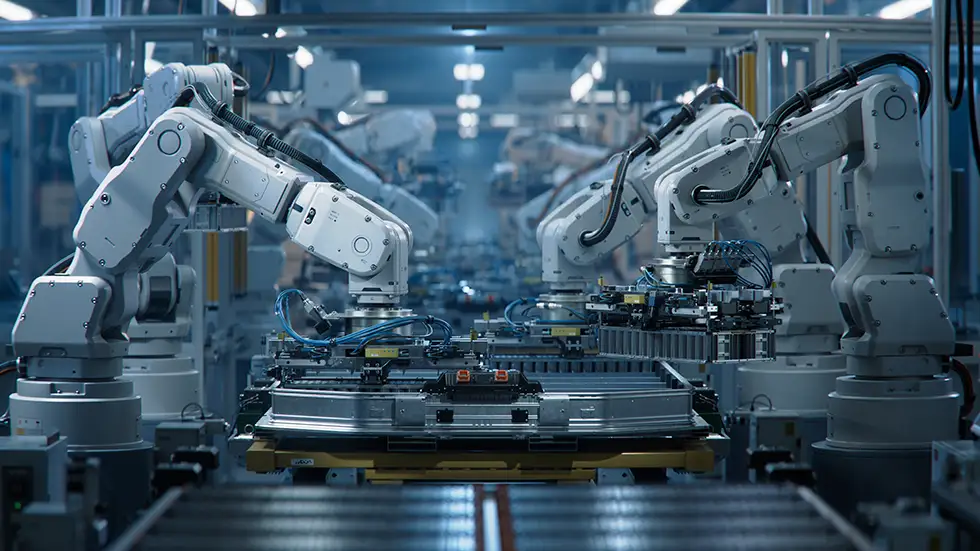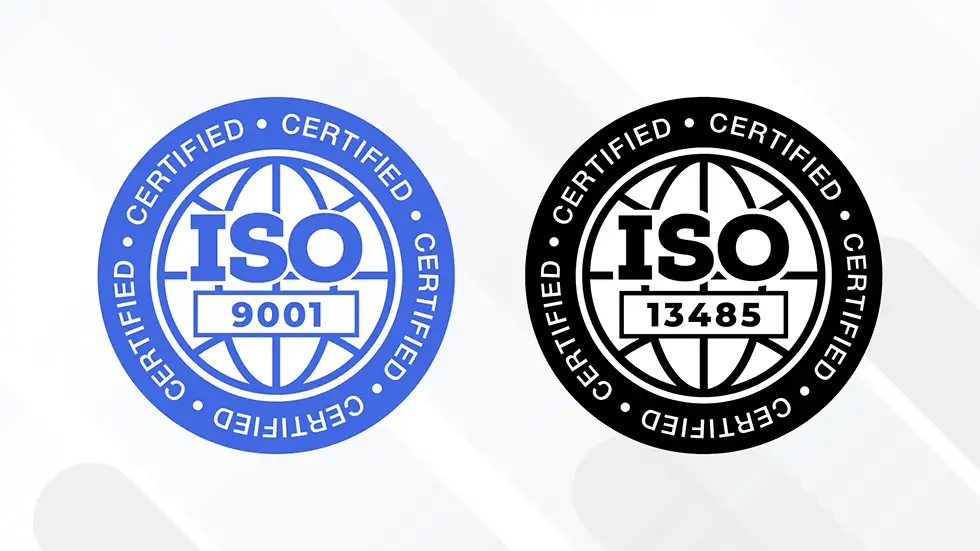Finding Companies that Outsource Machining Work

There are three classes of companies that outsource machining work and they’re commonly referred to as Tier 1 – original equipment manufacturers, Tier 2 – direct suppliers of components and assemblies to those OEMs (Tier 2 can also be OEMs), and Tier 3 – suppliers of components and value-added services to Tier 2. We’ll address all of them in this article as well as how to get in front of them. Read this article all the way to the end, and you’re guaranteed to be in a better position for growth than when you started! If you’d prefer a live explanation from an expert that understands manufacturing procurement and has over a decade of producing huge wins for machine shops that want growth, just schedule a call with the link below:

The most common type of company that outsources machining work or contracts machine shops will be manufacturers who produce assemblies that go into final products. The manufacturers we will discuss are distinguished by the tier of the supply chain they exist in. The first is what we call a Tier 1 manufacturer. These manufacturers might include companies like Boeing, Ford, or others. We can further divide these Tier 1 manufacturers into the categories of large global OEMs and smaller OEMs. The reason we need to make this distinction is that global OEMs often have the strictest requirements for their suppliers. For example, Boeing will likely require suppliers to have an AS9100 certification, be ITAR registered, and perhaps NADCAP accredited. Most of you reading this article will have a difficult time achieving all these requirements, but the good news is that the techniques you’ll use to get this tier 1 type of customer is going to be similar to the method of getting in front of smaller OEMs and Tier 2 manufacturers.
Your smaller Tier 1 manufacturers are the second class of company that outsources machining work, and while I realize that “smaller” is sort of a loose term, we’d characterize these companies as niche machinery or capital-intensive equipment manufacturers. These companies will often require an ISO 9001 certification, but many times will not.
Tier 2 Manufacturers Outsourcing Machining Work
The second major class of companies that outsource machining work will be your Tier 2 manufacturers. These companies work directly beneath your large OEMs to provide components for everything from aircraft landing gear to munitions, to engine blocks. These Tier 2 suppliers will be your easiest target for gaining machining work.
Types of Assemblies Tier Two Manufacturers May Work with in Aerospace and Automotive
Aerospace:

- Wing Assemblies: Subcontracted from specialized aerospace manufacturers.
- Fuselage Sections: Large sections may be produced by different suppliers.
- Landing Gear: Often manufactured by companies specializing in landing gear systems.
- Avionics Systems: Electronic systems for navigation, communication, and flight control.
- Cabin Interiors: Seats, overhead bins, and other passenger comfort components.
- Fuel Systems: Tanks, pumps, and related components.
- Engine Components: Parts like fan blades, casings, and turbine components.
- Electrical Wiring Harnesses: Complex wiring systems for various aircraft systems.
- Composite Structures: Lightweight materials used in various aircraft parts.
- Control Surfaces: Ailerons, elevators, and rudders.
Automotive:

- Engines and Transmissions: Key powertrain components often sourced from specialists.
- Chassis Components: Frames, axles, and suspension parts.
- Body Panels: Sheet metal and composite body parts.
- Interior Components: Seats, dashboards, and trim pieces.
- Electronics: Infotainment systems, sensors, and control units.
- Glass: Windshields, windows, and mirrors.
- Wheels and Tires: Sourced from specialized manufacturers.
- Fuel Systems: Tanks, pumps, and injectors.
- Braking Systems: Brake pads, rotors, and hydraulic systems.
- Safety Features: Airbags, seatbelt systems, and crumple zones.
These components are often highly specialized and require expertise that OEMs may not have in-house, leading to strategic partnerships with manufacturers who specialize in these areas. By the same token, these specialized manufacturers may not have in-house resources to produce every part of those assemblies, and that’s where you come in.
Tier 3 Companies Outsourcing Work
Tier 3 manufacturers are your next class of company that may be a source of overflow machining work. This company could be a large machining operation that does not have the capacity to complete all machining work in-house. They could also for example be a die caster or stamping operation that needs finished machining before they can send the parts to their Tier 1 or Tier two contractor.
Working with Tier 1 Manufacturers

First – as we stated before – Tier 1 manufacturers, especially those that work directly with the U.S. government have very strict requirements, and as a small machine shop, it is often cost prohibitive to spend the time and money to achieve these requirements. In addition, these manufacturers will often use databases of approved suppliers to fulfill their needs. Large OEMs like Boeing also have their own certification process that extends beyond the ISO standards. Boeing’s system is called BQMS which encompasses AS9100 and others QMS’s. Many times, when a large OEM needs to outsource machining work, it’s because their existing suppliers did not want the job, however they still require the certifications. One of the more common types of jobs a company like Boeing might outsource to a new machine shop will be a very short run, or prototyping job. Most of their existing suppliers will not be interested in the prototype job because it is not profitable enough to fit within their high overhead business model.
Tip: If you’re a medium to small size machine shop and you’d like to work directly with Tier 1 manufacturers, you first need to have your certifications, and then focus on advertising the type of work you’d imagine they might struggle to source with existing supply chain. We’ll get into how you advertise those capabilities later.
Working With Tier Two Manufacturers
Tier two will be your most likely source of machining work. Remember these are manufacturers who are making assemblies that go into the final OEM product. This type of manufacturer will not usually require any elaborate certifications from their suppliers and are simply looking for a machine shop that has the experience and machinery to product the components that will incorporate into their assembly.
When does Tier Two Outsource Machining Work?
There are three main scenarios in which a Tier 2 manufacturer will outsource machining work:
- They will outsource because their current machining supplier is not delivering on cost, timing, or quality.
- The manufacturer is bidding on or has won a contract for a new job.
- The manufacturer’s in-house capabilities are limited.
In all three cases two possible scenarios exist:
- The person responsible for procurement already knows some machine shops to reach out to for a quote
- They do not have a supplier identified and need to do a search. (Usually a google search)
In one survey, over 84% of manufacturing buyers said that they do an online search when looking for a new supplier. From my personal thousands of conversations with manufacturers, I’d guess that when the buyer does not have a preexisting relationship, the number that would go to internet search is closer to 100%.
How to find Companies That Outsource Machining Work
There are a couple ways you can find the types of companies listed above – primarily the Tier 2 manufacturers. You can actively pursue them through outside sales, or trade shows both of which have two distinct disadvantages. First, if 84% of manufacturers do an online search when looking for a new supplier, then when you contact one through outside sales or trade shows, chances are that they are already talking to some other companies. The second disadvantage is that these two methods cost you a lot of money before producing a result, since you are using a shotgun approach, hoping to hit a target.
Or…You Could Let Them Find You
If we can agree to this point: In cases where a person needing machining work does not already have someone in mind, they will likely resort to an online search.

Then we know what’s next on our agenda as the company looking for companies that outsource machining work. We need to get in front of their search, and then we need to convince them that our capabilities solve their problems.
Let’s go back to the three procurement scenarios we identified for Tier 2 manufacturers:
- They’ll outsource because their current machining supplier is not delivering on cost, timing, or quality.
- The manufacturer is bidding on or has won a contract for a new job.
- The manufacturer’s in-house capabilities are limited.
These three scenarios help us guide our messaging and help us identify the keywords that procurement person will use to search. Let’s say that from point 1, this individual had a machining supplier that was consistently late on delivery. In this case, the searcher will be interested in the capacity you have for new work, the high-speed machinery you have available, and your production management system. They will likely use a term like “fast-turnaround machining” and will likely specify a location near them.
Now if the searcher falls into the second two scenarios, their search query might be more general for example: “machine shops in Houston”, or they may search for any of a wide range of items like “machine shop that specializes in valve castings” or something specifically related to the job at hand.
Your job as the shop looking for companies that outsource machining work is to first identify what problems you’re best at solving and think about what someone would type in if they were looking for someone with your unique capabilities. This first step relates to your visibility in Google when someone searches for your capabilities. Secondly, your job is to thoroughly display your credibility and sell that person after the click through on Google to your website. If you perform either of these steps poorly, you lose the business.
How to perform each one of these steps correctly
You’ll learn how to optimize and rank your website for the best keywords and how to use your website as a selling tool in this article we previously wrote:
https://www.wecreate.com/the-definitive-2024-manufacturing-marketing-guide
A few more tips on finding new machining work:
- Stay up on current events in your market. A machine shop I know recently became aware that a large electronics OEM was opening a facility in their area. We spent an hour brainstorming the types of work they would need and made sure we used those keywords in articles and pages on their website. This company received an inquiry from the electronics manufacturer that turned into a large job.
- Use data as your ally. Using a tool like Google Search Console will show you exactly what people are searching for and where you show up in search for those terms. You can then identify keywords that are getting searched frequently and write new pages on your website that address those keywords.
- Think digital first when it comes to new business generation. Digital marketing will provide your lowest cost per lead, assuming you have someone that knows what they’re doing.


